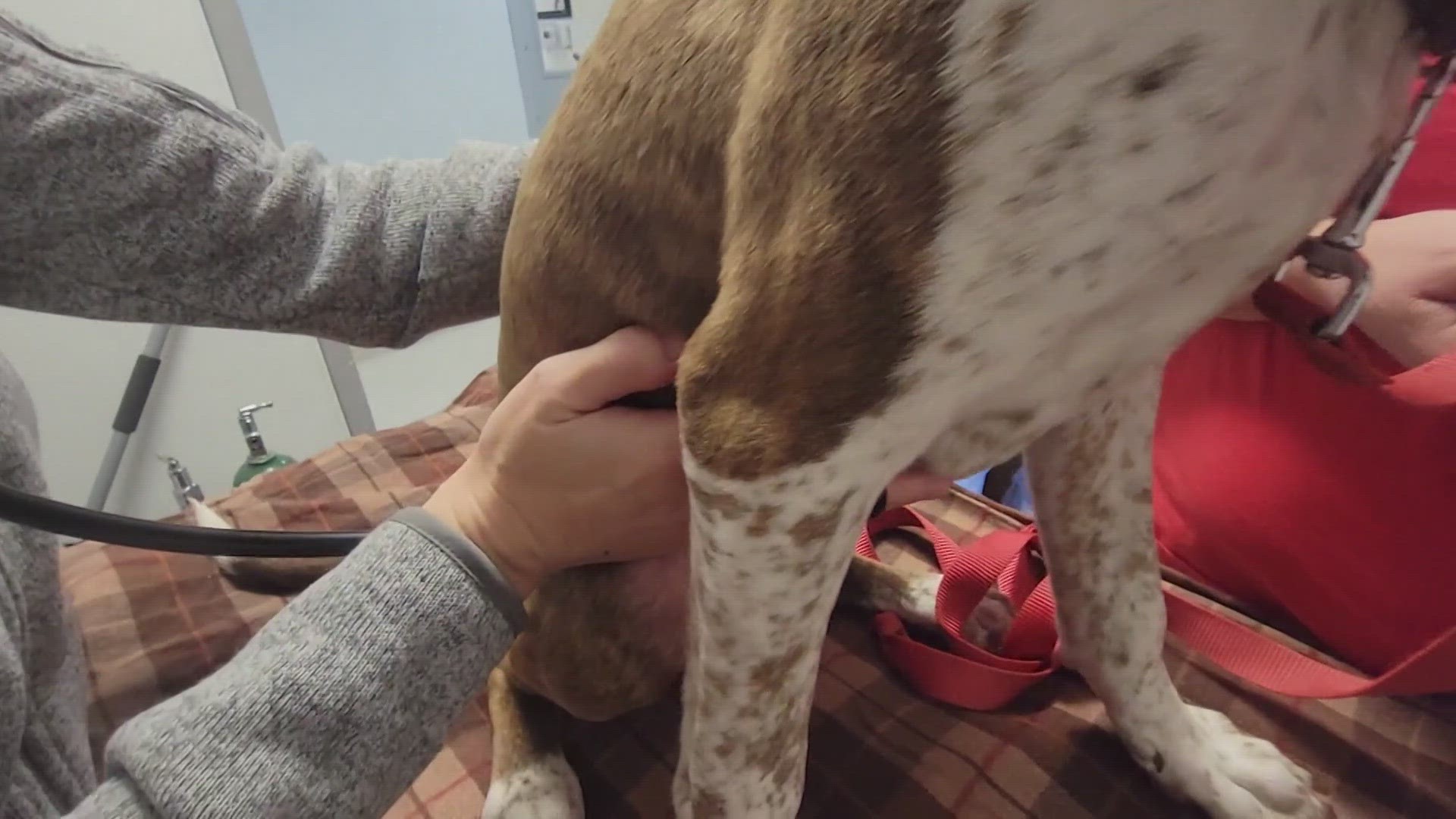WASHINGTON, USA — A mysterious respiratory illness plaguing dogs across the country has made its way to Washington state.
Expert advice is to keep your dog away from other dogs as much as possible, but this comes as dog owners prepare for holiday travel.
“I always tell people, the family dog is the most popular family member, it's the most loved,” said Pete O'Neil, owner of Seattle Dog Boarding, a home-based dog care center.
As soon as word of a mysterious dog illness came out, O'Neil sent a notice to his clients and started taking precautions, including increased disinfecting to keep dogs healthy.
“We're asking parents if the dog has had any kind of kennel cough or any kind of signs of sickness in the last two weeks, we asked that the dog not be here and we've been trying to keep dogs separated with their stay here just to be safe,” O'Neil said.
O'Neil said one client had already changed their holiday travel plans out of an abundance of caution.
“If anything happens to a family dog and if it's traumatic, I would understand if parents made a decision until there's more knowledge on this just to keep their dogs at home or maybe hire a sitter that can come to the house,” O'Neil said.
As of Dec. 1, 16 cases were submitted to the Washington State Department of Agriculture. Of the 16 reports, two cases have met the criteria for Washington's determination of an atypical Canine infectious respiratory disease complex (CIRDC) case. Dogs in the two confirmed cases, in Snohomish and Clark counties, are recovering, according to WSDA.
“Seven of those cases came out of King County. We don't yet know what exactly all of those cases are testing for. They're running panels on the cases they get reports for,” said Dr. Sarah Guess, professor in the small animal internal medicine department at Washington State University.
Dr. Guess said researchers are working to find answers.
“Some of the early preliminary research from our laboratory sampling would suggest that this could be a novel bacterial infection, meaning that it's a new bacteria we have not seen before. There are other reports that say it may just be a typical viral infection,” said Dr. Guess.
Dr. Guess encourages dog owners to avoid dog parks and other places where respiratory disease can be transmitted between dogs.
“My best advice is to stay aware, stay vigilant, and to make sure that you're working with your primary care veterinarian,” said Dr. Guess.
Veterinarians also said to make sure your dog is up-to-date on vaccinations like Bordatella and parainfluenza.
“Certainly never take your dog around any other dog who you know is already sick, or around a lot of dogs whose health status is unknown and if you're concerned your dog could be sick, this is the time to social distance your dog until you can have a conversation with your veterinarian and see what's going on,” said Dr. Kelly Cairns, Thrive Pet Healthcare’s vice president of medical excellence and education.
Dr. Cairns said a possible cause of a spike in cases could be low vaccination rates or lower immunity after pandemic isolation.
“We have interacted differently in the last few years, just like us as humans have gone from being less social to more social. In the last few years with COVID, we see that our dog's social behavior has also changed, so they are back to interacting with more dogs,” Dr. Cairns said.
Common symptoms of a respiratory tract illness are coughing, sneezing, and discharge from the nose and eyes, and Dr. Cairns said if you see those to call your vet and take their recommendation for next steps.
However, Dr. Cairns said there are some symptoms that would require immediate action.
“If you ever notice a severe cough, so severe that your dog may actually be retching or vomiting because of the cough. If your dog is lethargic, weak, having increased effort to breathe, or difficulty breathing, these are some of the things that if you see them, you do want to have your dog seen by an urgent care or a 24/7 emergency facility as soon as possible,” Dr. Cairns said.

